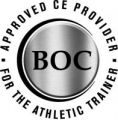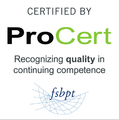Course Design
Our PRT courses are designed for health care professionals and students who are seeking to advance their manual therapy skills to meet their next professional challenge. Those likely to benefit are PTs, PTAs, ATs, LMTs, DC and DO who are new to positional release therapy (PRT) or who would like to learn our novel integrated approaches.
The foundation of the curricular design and delivery of the courses is based on Adult Learning Principles, which enhances the learning and recall experience of the participant. Dr. Speicher's PhD is Adult Learning and he brings this expertise to your course experience to make sure the information gets into your brain and stays there!
In order for adults to learning effectively, training needs to be designed in a way that meets at a minimum, the following 3 Core Principles of Adult Learning:
- Relevance or applicability of the learning experience must be apparent
- Adults learn best by doing
- Learning is optimized with deliberate practice that engages all the senses
Benefits of Hosting a Course
Cost Savings
Hosts receive discounted registration, e.g., 30-50%, course textbook discounted (approx. 30% off) and participants receive cost savings due to not having to travel to a course, which typically will save an individual participant approx. $1,500-2,000).
- STUDENT 1 OR 2 YEAR CURRICULUM
- In 1 or 2 years, students can take our entire live core curriculum and earn their Registered credential as a Certified Positional Release Therapist (PRT-c).
- Savings to the program is based on Program commitment (# of courses) and number of students. Please inquire about this option for more information if interested.
Team Training Continuity
Since all team members receive the same training at the same time, all members are on the same page in regards to the instruction and its application, which facilitates further practice and refinement of skills among team members but also the training immediate application to their clientele.
Recognition in Therapeutic Community
The course is advertised to the therapeutic community and the HOST receives recognition in the advertising
Small Student to Instructor Ratio
A 1:12 instructor to student ratio is utilized for most courses providing the participant a positive learning experience.
Requirements for Hosting a Course
-
We require adequate lighting and ventilation for space the course is held in.
-
The Space requirement is dependent upon the number, e.g., adequate space for 12 (6 massage tables) would require about 400 sq ft. vs 24 (12 massage tables), approx 500-600 sq. ft. Adequate space for movement and instruction is required.
-
10 professional participants per course is required to host a course.
-
The facility should have an emergency action plan (EAP), which outlines how an emergency be handled if one occurs during a course.
-
AV support or assistance if we are using AV/LCD, etc.
-
Adequate tables and chairs for the number served or instructed is required, e.g., 12 = 6 tables and chairs, 24= 12 tables and chairs (some hosts are ok with requiring their participants to bring their own tables, which is ok---this is done often for massage therapists because they typically have their own tables.
Cost
Registration cost varies based on the course, composition and design of the course. However, most courses range from $425 - $625.00 for Professionals and $385.00 - $285.00 for Students, which includes a minimum of 10.5 hours of instruction, 6.0 of which is offered to ATs as approved EBP credit.
For hosted courses, for every 10 registrations, one FREE registration will be provided to the host. Check our instructional offerings by segment for current pubic openings and course options.
If interested in hosting a course at your facility, please complete the Host pricing proposal form, which can be found here
Course Options/Types
Continuing Education Units (CEUs) or also known as CE, are provided for all of the courses we teach. In addition, we also provide EBP (Evidence-Based Practice) credit for Atheltic Trainers (ATs).
We are currently a recognized National CE provider for:
- Athletic Trainers (AT/ATC)
- Physical Therapists / Physical Therapy Assistants (PT/PTA) - click for approved states
- Massage Therapists (LMT)
However, we can apply for CE for any state or licensed health care professional. Other professionals who have taken our courses have been:
- Chiropractors
- Physicians (MD/DO)
- Accupuncturists
- Occupational Therapists
- Nurses
- Physician Assistants
Typically, one hour of CE is provided for each hour of instruction. The following is a list of current CE offerings per our standard course offerings:
- Cranial (10.5; 6.0 EBP for AT and 4.5 Cat. A)
- Lower Quarter (10.5; 6.0 EBP for AT and 4.5 Cat. A)
- Upper Quarter (10.5; 6.0 EBP for AT and 4.5 Cat. A)
- Spine and Pelvis (10.5; 6.0 EBP for AT and 4.5 Cat. A)
- Positional Release Therapy: An Evidence-Based Update (6.0 EBP)
- Facilitated PRT (10.5)
- How to Solve Chronic Non-Specific Low-Back Pain: The Wheelhouse Protocol (6.0 EBP)
- Therapeutic Modalities: Electrotherapy (3.0; EBP)
- Gait Analysis (4.0)
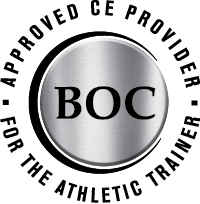
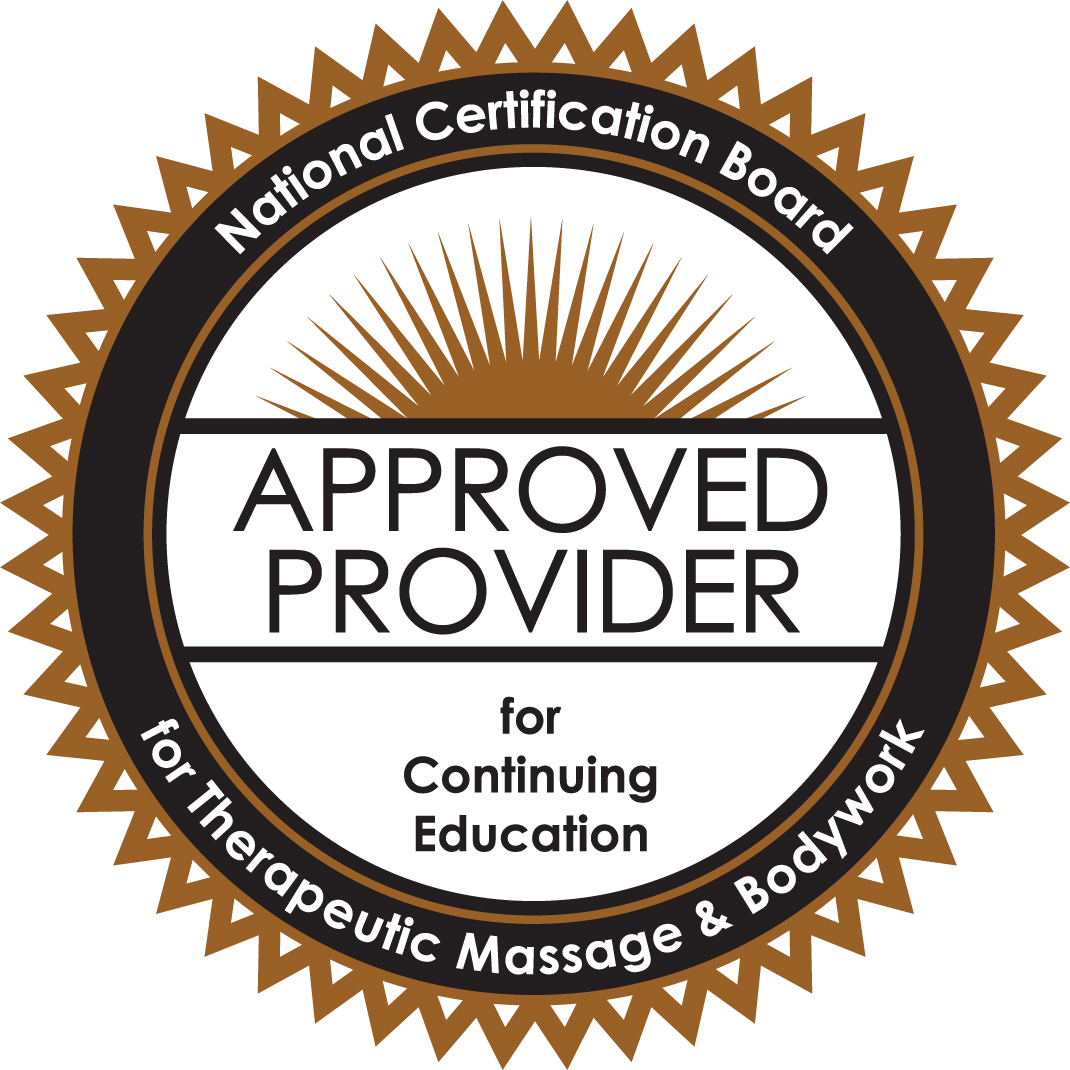

Positional Release Therapy
2-Year Student Curriculum
The following is a suggested curricular sequencing to enable pre-professional health care students to understand how to integrate manual and traditional therapy as well as graduate as a Positional Release Therapist (PRT-c) upon graduation and successful professional licensing.
Sequencing:
While there are multiple potential versions of curricular sequencing, we suggest starting with the spine and pelvis course. However, you can choose which course best follows or complements your curriculum. Each course has a heavy emphasis on palpation/anatomy, therefore, prior instruction in the body area will be helpful, but is not required. If you are interested in pairing cadaver dissection or biomechanical analysis with our course instruction, please let us know. Prior to taking the live course instruction, participants will be provided a link to take our online lecture content associated with the course. Online instruction will be required to be completed before an individual can take the live or hands-on instruction.
The suggested sequence is based on a summer start, however, if a program starts in the fall, then they are one semester behind in the suggested sequence. Both Spine and Pelvis (1 course) and Lower Quarter & Upper Quarter (2 courses) courses will occur over two full days. The cranial course is a one-day course and the Certification exam, 2-4 hours, depending on number of candidates. Those wishing to pursue Certification as a Positional Release Therapist (PRT-c), must have taken Spine and Pelvis and two other live courses. Students will be required to register and pay for Certification—it is not included in the Program price or Institutional Contract unless otherwise arranged.
Additionally, the PRT textbook can be adopted by the institution or it can be added to the price of the institutional contract.
Version 1
|
Fall Semester |
Winter / Spring |
Summer |
|
|
|
|
|
|
|
Repeat sequence w / new cohort |
Version 2
|
Fall Semester |
Winter / Spring |
Summer |
|
|
|
|
|
|
|
Repeat sequence w / new cohort |
Student Curriculum Pricing:
Pricing is based on several factors such as, instructor to student ratio (1:12 = one instructor), number of students, location and duration of the Program or institution contract. Additionally, if a certified instructor(s) is provided by the institution, then an additional discount would apply. Institution provided Certified Positional Release Therapist Educator (PRT-e) for instruction = $1,000.00 Discount. Also, for every 10 Professionals, the institution receives one complimentary professional registration. Also, if a Program opens the course to the general public (professionals), then an additional discount may be applicable. Note: Upper and Lower Quarter = 2 courses.
|
# Students |
1 Course |
1 Year (4 Courses) |
2 Year (8 Courses) |
|
12 |
$285.00 ea. |
250.00 ea. |
200.00 ea. |
|
13-24 |
$250.00 ea. |
225.00 ea. |
185.00 ea. |
|
25-36 |
$220.00 ea. |
200.00 ea. |
175.00 ea. |
|
37-48 |
$195.00 ea. |
175.00 ea. |
150.00 ea. |
|
49-60 |
$150.00 ea. |
135.00 ea. |
125.00 ea. |
|
61-72 |
$125.00 ea. |
115.00 ea. |
110.00 ea. |
|
73-84 |
$115.00 ea. |
110.00 ea. |
105.00 ea. |
Course Policies and Procedures
- Appropriate Language Use: The Positional Release Therapy Institute certifies and acknowledges there is no bias or cultural insensitivity used in the language pertaining to the courses or certification that are provided to attendees and certifies the use of the most current acceptable terminology.
- Non-Discrimatory Policy/Statement: The Positional Release Therapy Institute certifies compliance with the laws and rules pertaining to discrimination relevant and applicable to the activity.
- Course Cancellation/Refund Policy: If you must cancel your registration prior to the course, it may be transferred to another licensed health care provider or your registration will be transferred to an upcoming course. No refunds will be provided. If PRT-i must cancel an educational session, your registration will be transferred to an upcoming course. If you are unable to attend a course you have registered for due to illness, family emergency, or another unexpected event, the same policy as noted above will apply. A course will run if there is a minimum of 6 participants registered. If a course does not meet the minimum number needed, those pre-registered will be notified one-month in advance and will be rescheduled for a future course.
- Grievance Policy: If you should have a grievance with any services offered by PRT-i, please provide in writing your grievance to PRT-i and your desired resolution pertaining to the matter. PRT-i will address the grievance within 30 days of receipt.
- Inclement Weather Policy: If the National Weather Service has issued a Storm Warning for the local area for the time when and where the course is to be conducted, the course will be canceled to ensure the safety of course participants and instructors.
- Record Keeping and Confidentiality: All materials whether electronic or print that identify the course participant, their personal and professional contract information, are not shared with any outside entity unless written permission is granted from the course attendee. Course registration materials with identification information and/or payment information are retained by PRT-i for a minimum of 10 years and any electronic records with such information are password protected and stored only on PRT-i computers. An outside entity is utilized for course registration and business transactions, which utilize up-to-date internet security measures to protect all personal and financial information. Course attendees may elect to list personal and professional identification information (e.g., name, email, phone, courses taken, certifications) if they either elect to do so at the time of course registration or thereafter in writing.
- Copyright and Conflict of Interest Disclosure: Dr. Speicher is the author of Clincial Guide to Positional Release Therapy (Human Kinetics Publishing, 2016) and its related media resources. While it is highly recommended course participants purchase the textbook and its supplementary resources, it is not required for course participation.
Top 10 FAQ's
1. What is the cost of hosting a course?
Cost is dependent upon the course request form and the factors related to course make-up. However, typically, attendees pay $185-$350 per course.
2. How many people or attendees do I need to host a course?
We recommend 12. However, we have done private courses as small as 4-6, but this is dependent upon course location. Please inquire if you do not have at least 12 individuals.
3. How much space do I need to host a course?
Typically space requirements are dependent upon the number of attendees expected and the treatment tables and stools needed for instruction. For example, 12 attendees = 6 treatment tables and 12 stools. We recommend at least a minimum of 2-3 feet between tables for adequate instructional space.
4. What happens if someone from my clinic or staff needs to cancel?
We recommend you have someone else take the course in their place and if this is not possible, they can be provided a registration for a future course or their registration can be credited to a future course if paid for by their employer. Our full cancellation and refund policy can be found under our course policies and procedures.
5. Are we responsible for the number of attendees we contracted?
Yes, but we will work with you to adjust the cost of your course if possible.
6. What happens if I need to cancel the course?
If you need to cancel the course, once contracted, we will reschedule the course at a time that works for you.
7. Can you teach a course during the week or on a holiday?
Yes, we will meet your schedule needs, however, advanced notice is required.
8. Is there certification associated with the course?
Yes. Each live course counts towards our certification in PRT, but to gain certification, three live, in-person courses, must be taken, including Spine and Pelvis. We can offer our certification exam at your facility or you can take it yearly at one of our specified locations.
9. Can we do two courses back to back?
We do not recommend taking or offering two PRT courses back to back. We have found that one manual therapy course is often the maximum an individual can absorb, from a cognitive and physical standpoint. However, many often will combine or add-on one of our other smaller courses, e.g., gait analysis or electrotherapy, without issue.
10. Can students take the course?
Absolutely! We recommend students take PRT courses as soon as possible in their training and that their preceptors also take the courses with them to help facilitate their learning in their clinical environment. We do recommend students have basic anatomy and physiology prior to taking a course.
Research
While we are engaged in fostering the practice of Positional Release Therapy (PRT), we are equally committed to pushing forward the research of PRT both through conducting our own research here at the Positional Release Therapy Institute and also through our collaborative relationships and partnerships with research institutions and organizations.
We also assist students and educational programs interested in positional release therapy research. If interested, contact us for assistance.
Collabortive Research Partners







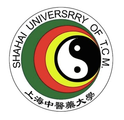
Current Projects
- Cui J., Speicher TE., Scharmann S The role of positional release therapy in treating parsonage-turner syndrome: A case report Journal of Athletic Training
- Selkow N, Speicher TE, Warren A Blood flow and structural tissue changes at the lateral elbow in healthy participants after manual and conventional therapy Journal of Athletic Training
- Dexter RR, Loftis TK, Baker RT, Speicher TE Exploratory analysis of regionally interdependent changes in shoulder internal and external rotation in collegiate overhead athletes International Journal of Orthopedic and Physical Therapy
- Speicher TE Is there a cure for non-specific low-back pain? A case-series design of positional release therapy for patients with chronic non-specific low back pain and anterior innominate rotation shows that there may be a solution to solving the puzzle of chronic no
- Speicher TE, Smith, S, Cappaert, T Inflammatory marker and DNA transcription changes in fibromyalgia patients after a six-week treatment cycle of positional release, massage, positional release and massage combined with a home exercise program and a home exercise program alone New England Journal of Medicine
- Speicher TE, Draper DO, Rigby J, Torgerson K Comparison of positional release therapy, pulsed ultrasound, and patterned electrical neuromuscular stimulation on tissue hardness and pressure sensitivity threshold of trigger points in the upper trapezius: A randomized controlled trial International Journal of Musculoskeletal Medicine
- Loveless J, Speicher TE Evaluation of the relationship between pressure sensitivity, numerical rating score and visual analog scale assessment of upper trapezius trigger points Clinical Journal of Pain
- Morton A, Speicher TE Immediate effect of sports massage on tissue compliance of the iliotibial band, quadriceps and gastrocnemius of competitive runners Massage Therapy Journal
Articles
Shoulder
-
Short Term Effects of a Pectoralis Minor Positional Release in Collegiate Swimmers
NM Selkow, J Roman - Clinical Practice in Athletic Training, 2018
-
The Role of Positional Release Therapy in Treating Recalcitrant Brachial Plexus Neuritis: A Case Report
Speicher, Scharmann and Cui - Journal of Athletic Training, 2021
Knee and Thigh
-
The effect of positional release therapy on intercollegiate male basketball athletes classified with patella tendinopathy.
Bianco LC, May JM, Fermin SL, Oates R, Cheatham SW - International Journal of Athletic Therapy and Training, 2018
-
Comparing the Effectiveness of Positional Release Therapy Technique & Passive Stretching on Hamstring Muscle Through Sit to Reach Test in Normal Female Subjects
Manivannan M Kaandeepan, E S Cheraladhan, M Premkumar, Shikha K Shah - Indian Journal of Physiotherapy and Occupational Therapy, 2011
Spine
-
Treatment of Acute Torticollis Using Positional Release Therapy: Part 2
Russell T. Baker, Alan Nasypany, Jeff G. Seegmiller, Jayme G. Baker - International Journal of Athletic Therapy and Training, 2013
-
Conventional Therapy Versus Positional Release Technique in the Treatment of Chronic Low Back Dysfunction
Emad Eldin Mohamed Abd Elatief Ibraheem - International Journal of Physiotherapy and Research, 2017
Elbow
-
Evaluation and Treatment of Apparent Reactive Tendinopathy of the Biceps Brachii
Russell T. Baker, Mark Van Riper, Alan M. Nasypany, Jeff G. Seegmiller, EdD, ATC, LAT - International Journal of Athletic Therapy and Training, 2014
-
Manual therapy improves blood flow and muscle fiber orientation of the forearm extensors
Speicher, Selkow, Warren - The American Institute of Ultrasound in Medicine, 2019
Related Articles
-
Positional Release Therapy
Speicher, TE - Massage Magazine, 2015
-
Top – 10 Positional-release therapy techniques to break the chain of pain: Part 1.
Speicher, TE & Draper, DO - International Journal of Athletic Therapy and Training, 2006
-
Top – 10 Positional-release therapy techniques to break the chain of pain: Part 2.
Speicher, TE & Draper, DO - International Journal of Athletic Therapy and Training, 2006
-
Regionally Interdependent Applications of Total Motion Release® and Active Rotational Shoulder Range of Motion in Overhead Athletes
R Ross Dexter, MS, MKin, AT, LAT, CSCS; Terylan K Loftis, MS, AT, LAT, PRT-c®; Russell T Baker, PhD, DAT, AT, CMP, PRT-c®; Timothy E Speicher, PhD, AT, LAT, CSCS, PRT-c® - Clinical Practice in Athletic Training, 2019
Head / Cranium
-
Recovery from temporomandibular joint dysfunction: An overview of different physiotherapy approaches
Dr. Aparna Gupta, Dr. Bharti Arora, Dr. Priyanka Rishi - International Journal of Yoga, Physiotherapy and Physical Education, 2019


















